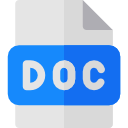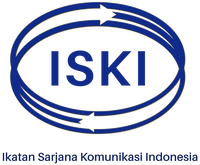Hegemoni Kapitalisme Dalam Transisi Demokrasi di Indonesia Analisis Wacana Kritis
DOI:
https://doi.org/10.31315/jik.v12i3.1431Keywords:
Episteme, formasi wacana, hegemoni, dan lembaga keuangan duniaAbstract
Artikel ini berangkat dari asumsi bahwa krisis ekonomi yang terjadi di Indonesia digunakan sebagai cara bagi kekuatan kapitalistik dan liberalisasi untuk mengintervensi dan membuka pasar.Oleh karena itu ketika pemerintah Indonesia mengundang IMF dan WB untuk mengurangi krisis, kedua lembaga keuangan dunia tersebut memberikan resep yang harus diimplementasikan. Berdasarkan pada konsepsi wacana Michael Foucoult, artikel ini ditujukan untuk memahami tiga aspek analisis wacana Foucoult yakni pertama, struktur konseptual yang menjelaskan sejumlah terminologi yang digunakan untuk mencari kepentingan dari masing-masing pihak yang berkontestasi. Kedua, struktur pengetahuan yang menstruktur gagasan tertentu terhadap hal yang dikontestasikan. Ketiga, formasi wacana yang mengartikulasikan secara keseluruhan gagasan dan narasi tentang krisis ekonomi yang terjadi di Indonesia. Dengan meneliti harian Kompas selama bulan April dan Mei 1998, tulisan ini dimaksudkan untuk mengungkapkan tiga hal tersebut. Hasilnya, kekuatan kapitalistik dan liberalisasi mendiktekan kepentingan atas krisis yang tengah terjadi di IndonesiaReferences
Alit, IGK, 1998, Lahirnya Gerakan Reformasi di Indonesia, Jakarta: DPP Forum Komunikasi Anak Bangsa
Basri, Muhammad Chatib and Iswara Dana, 2000, Exit, Voice and Loyalty: Ekonomi Politik Modal dan Peran Media di Masa Krisis, Jakarta: Gramedia
Berg, Andrew, 1999, The Asia Crisis:Causes, Policy, Responses, IMF Working Paper
Camdessus, Michel, 1999, Economic and Financial Situation in Asia:Latest Developments, Paper, Asia Europe Finance Minister Meeting
Foucoult, Michael, 1991, The Order of Things An Archeology of the Human Sciences, New York: Vintages Books
Guba, Egon G and Lincoln,Yvonna S,”Competing Paradigms in Qualitative Research,”in Denzin,Norman K and Lincoln,Yvonna S, 1994, Handbook of Qualitative Research, London: Sage Publication
Hill, David T, 2000, Media Culture and Politics in Indonesia, NY: Oxford University Press
Huberman, A Michael and Miles, Mathew B, “Data Management and Analysis Methods,in Denzin,Norman K and Lincoln,Yvonna S, 1994, Handbook of Qualitative Research, London:Sage Publication
Lippman, W, 1992, Public Opinion, NewYork: Macmillan
Littlejohn, Stephen W, 2002, Theories of Human Communications, Albuquerque: Wadworth
Kivimaki, Timo, “US-Indonesia Relation During The Economic CrisisWhere has Indonesia’s Bargaining Power Gone? Journal Contemporary Southeast Asia, Volume 22 Year 2000
Kunio, Yoshihara, 1990, Kapitalisme Semu Asia Tenggara, Jakarta: LP3ES
Palan, Ronen, 2000, Global Political Economy Contemporary Economy, New York: Routledge
Smith, Benjamin, 2003, If I Do These Things, They Will Throw me Out, Journal of International Affairs, Vol.57 Issues 1
Shoemaker, Pamela J and Reese, Stephen D, 1996, Mediating The Message Theories of Influences on Mass Media Content, London: Longman
Stiglitz, Joseph E, 2005,. Dekade Keserakahan, Jakarta: Marjin Kiri
Forbes, 21 Juni 1982
Kompas, 5 Mei 1998
Kompas, 8 Mei 1998
Republika, 8 April 1998
Republika, 17 April 1998
Republika, 18 April 1998
Republika, 5 Mei 1998
Suara Merdeka, 17 Mei 1998
The Jakarta Post, 14 Mei 1998
The Jakarta Post, 15 Mei 1998
Downloads
Published
Issue
Section
License
Authors who publish articles in this journal agree to the following terms:
- Copyright remains with the author and gives rights to the Jurnal Ilmu Komunikasi as the priority to publish the article with an Creative Commons Atribusi 4.0 Internasional License, which allows the article to be shared with acknowledgment of the author of the article and this journal as the place of publication.
- Authors can distribute the publication of their articles on a non-exclusive basis (for example: on university repositories or books) with notification or acknowledgment of publication in the journal Option
- Authors are allowed to post their work online (for example: on personal websites or in university repositories) before and after the submission process (see The Effect of Open Access)
Jurnal Ilmu Komunikasi is licensed under a Creative Commons Atribusi 4.0 Internasional License.









